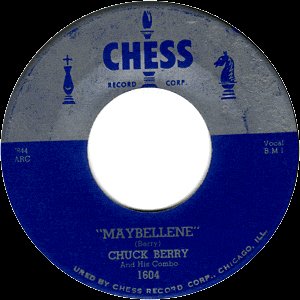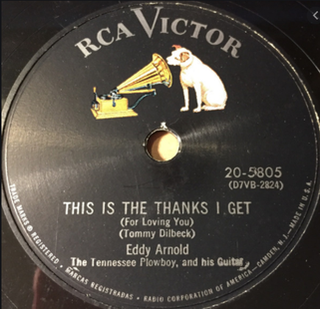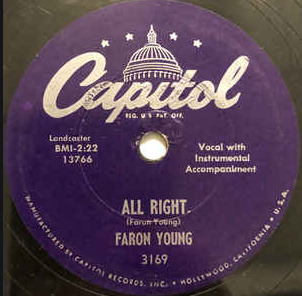
"Unchained Melody" is a 1955 song with music by Alex North and lyrics by Hy Zaret. North wrote the music as a theme for the prison film Unchained (1955), hence the song title. Todd Duncan sang the vocals for the film soundtrack. It has since become a standard and one of the most recorded songs of the 20th century, most notably by the Righteous Brothers in 1965. According to the song's publishing administrator, over 1,500 recordings of "Unchained Melody" have been made by more than 670 artists, in multiple languages.
The Billboard charts tabulate the relative weekly popularity of songs and albums in the United States and elsewhere. The results are published in Billboard magazine. Billboard biz, the online extension of the Billboard charts, provides additional weekly charts, as well as year-end charts. The two most important charts are the Billboard Hot 100 for songs and Billboard 200 for albums, and other charts may be dedicated to a specific genre such as R&B, country, or rock, or they may cover all genres. The charts can be ranked according to sales, streams, or airplay, and for main song charts such as the Hot 100 song chart, all three data are used to compile the charts. For the Billboard 200 album chart, streams and track sales are included in addition to album sales.

"Mr. Sandman" is a popular song written by Pat Ballard and published in 1954. It was first recorded in May of that year by Vaughn Monroe & His Orchestra and later that year by The Chordettes and the Four Aces. The song's lyrics convey a request to "Mr. Sandman" to "bring me a dream" – the traditional association of the folkloric figure. The pronoun used to refer to the desired dream is often changed depending on the sex of the singer or group performing the song, as the original sheet music publication, which includes male and female versions of the lyrics, intended.

"Maybellene" is a rock and roll song by American artist Chuck Berry, adapted in part from the Western swing fiddle tune "Ida Red". Released in 1955, Berry’s song tells the story of a hot rod race and a broken romance, the lyrics describing a man driving a V8 Ford and chasing his unfaithful girlfriend in her Cadillac Coupe DeVille. It was released in July 1955 as a single by Chess Records, of Chicago, Illinois. Berry's first hit, "Maybellene" is considered a pioneering rock and roll song. Rolling Stone magazine wrote of it, "Rock & roll guitar starts here." The record was an early instance of the complete rock and roll package: youthful subject matter; a small, guitar-driven combo; clear diction; and an atmosphere of unrelenting excitement.
Billboard Year-End charts are cumulative rankings of entries in Billboard magazine charts in the United States in any given chart year. Several hundred Year-End charts are now published by Billboard, the most important of which are the single or album charts based on Hot 100 and Billboard 200 respectively.
"She Was Only Seventeen (He Was One Year More)" is a song written and sung by Marty Robbins. The song was accompanied with Ray Coniff and His Orchestra, and released on the Columbia label.

"A Full Time Job" is a song written by Gerry Teifer, sung by Eddy Arnold, and released on the RCA Victor label. In July 1952, it peaked at No. 1 on Billboard's country and western jockey chart. It spent 18 weeks on the charts and was ranked No. 15 on Billboard's 1952 year-end country and western best seller chart and No. 21 on the year-end juke box chart.
These are lists of Billboard magazine's "Top Country & Western Records" for 1951, ranked by retail sales and juke box plays.

"That's How Much I Love You" is a country music song written by Arnold, Fowler, and Hall, sung by Eddy Arnold, and released in 1946 on the RCA Victor label. In October 1946, it reached No. 2 on the Billboard folk chart. It was also ranked as the No. 10 record on the Billboard 1946 year-end folk juke box chart.

"This Is the Thanks I Get (For Loving You)" is a song by Eddy Arnold. It was released in 1954 on the RCA Victor label (catalog no. 20-5805). It was written by Tommy Dilbeck. In August 1954, it peaked at No. 3 on the Billboard country and western chart. It was also ranked as the No. 12 record on Billboard's 1954 year-end country and western retail chart.
"Hep Cat Baby" is a country music song written by Cy Coben, sung by Eddy Arnold, and released in 1947 on the RCA Victor label. In August 1954, it reached No. 7 on the Billboard folk juke box chart. It was also ranked as the No. 25 record on the Billboard 1954 year-end folk juke box chart.
Billboard Top Country & Western Records of 1955 is made up of three year-end charts compiled by Billboard magazine ranking the year's top country and western records based on record sales, disc jockey plays, and juke box plays.

"I've Been Thinking" is a song written by Boudleaux Bryant, performed by Eddy Arnold, and released on the RCA Victor label. In January 1955, it peaked at No. 2 on Billboard's country and western juke box chart. It spent 25 weeks on the charts and was also ranked No. 10 on Billboard's 1955 year-end country and western retail chart and No. 12 on the year-end juke box and disk jockey charts.
"Are You Mine" is a song written by Don Grashey, James Amadeo, and Myrna Lorrie, performed by Ginny Wright and Tom Tall, and released on the Fabor label. In October 1955, it peaked at No. 2 on Billboard's country and western disk jockey chart. It spent 26 weeks on the charts and was also ranked No. 14 on Billboard's 1955 year-end country and western juke box chart and No. 17 on the year-end retail chart.

"All Right" is a song written and sung by Faron Young and released on the Capitol label. In August 1955, it peaked at No. 2 on Billboard's country and western disk jockey chart. It spent 28 weeks on the charts and was also ranked No. 10 on Billboard's 1955 year-end country and western disk jockey chart and No. 16 on the year-end juke box chart.

"Geisha Girl" is a song written by Lawton Williams, sung by Hank Locklin, and released on the RCA Victor label. In August 1957, it peaked at No. 4 on Billboard's country and western best seller's chart. It spent 39 weeks on the charts and was also ranked No. 19 on Billboard's 1957 year-end country and western retail best seller chart.

"Blue Boy" is a song written by Boudleaux Bryant, sung by Jim Reeves, and released on the RCA Victor label. In July 1958, it peaked at No. 2 on Billboard's country and western jockey chart. It spent 22 weeks on the charts and was also ranked No. 10 on Billboard's 1958 year-end country and western chart. On the Hot 100, "Blue Boy" peaked at No. 45.










